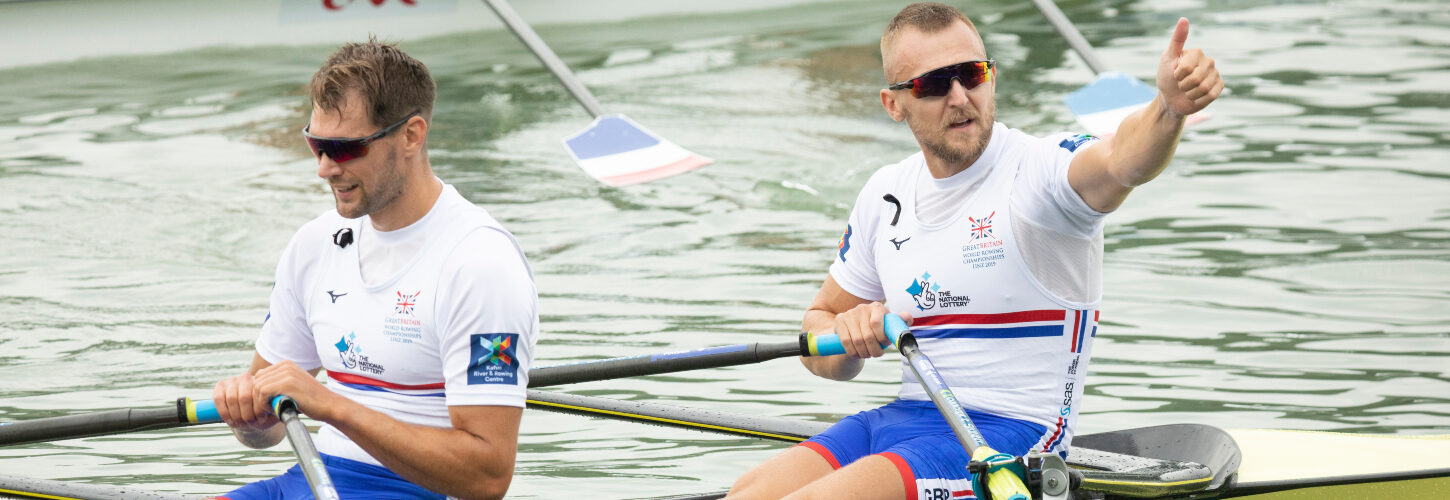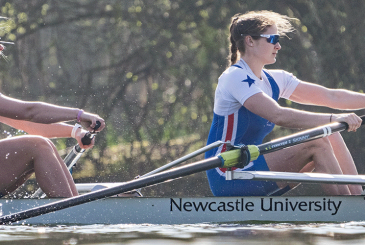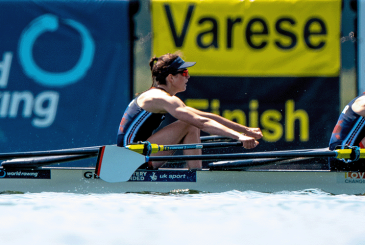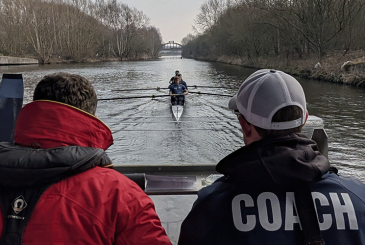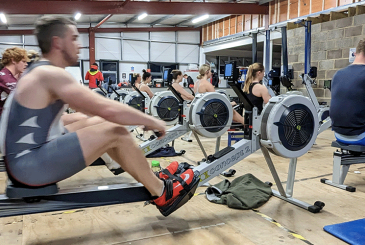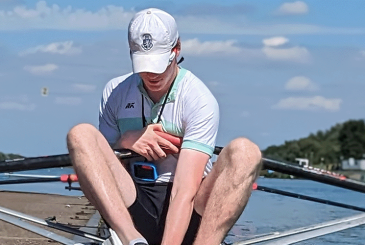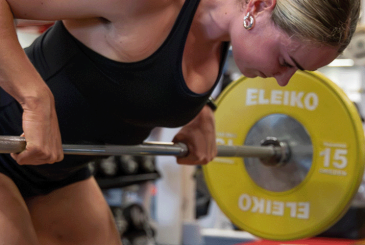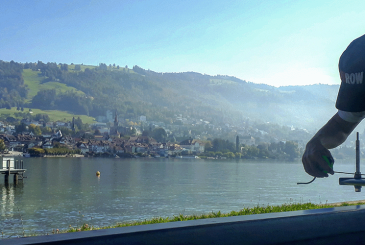In our new series spotlighting #GreatCoaching, GB rower John Collins shares the coaching moments that have been pivotal to his career
John Collins is a member of the Great Britain squad, now in his eighth season with the senior team, six times a winner at Henley Royal Regatta, a world medallist and an Olympic finalist in the double scull in Rio de Janeiro in 2016.
Sixteen years ago, however, he would have described himself as “a chubby little kid who liked sweets and PlayStation”.
Rowing offered a route to sporting fulfilment and success, but he wasn’t immediately a fan. Looking back now he can pinpoint the moment things took a turn for the better and identify the person responsible.
“Before rowing, I had no sporting background. I was awful at catching and throwing and even worse at running,” Collins recalls.
A Year 11 pupil at Orleans Park School in Twickenham, he had to choose a sport as part of the Duke of Edinburgh’s Award scheme.
His father Phil had rowed as a youngster and returned to rowing at Putney Town RC in his forties. He eventually dragged John to the boathouse, where his friend Geoff Adams agreed to take the 15-year-old for a row in a double scull.
Collins says: “I wasn’t sold, but I thought I couldn’t be worse at this than anything else. It was December, it was freezing and I had no idea about feathering and squaring. I was just trying not to fall in. It was cold, horrid, painful and tiring and I hated it.
He recognised that an awkward 15-year-old would stick at the sport
“When we got back, before I could say anything my Dad asked Geoff how it had gone and Geoff said: ‘I couldn’t keep up.’
“It might have been a set-up – maybe my Dad slipped Geoff a fiver – but it hit the spot with me.
“I thought, I’m not as bad at this as I thought I was. So, I decided to stick with it. I was sold.
“I owe Geoff a lot for that. That was the moment I fell in love with a sport. The more I think about it now, the more I appreciate it.”
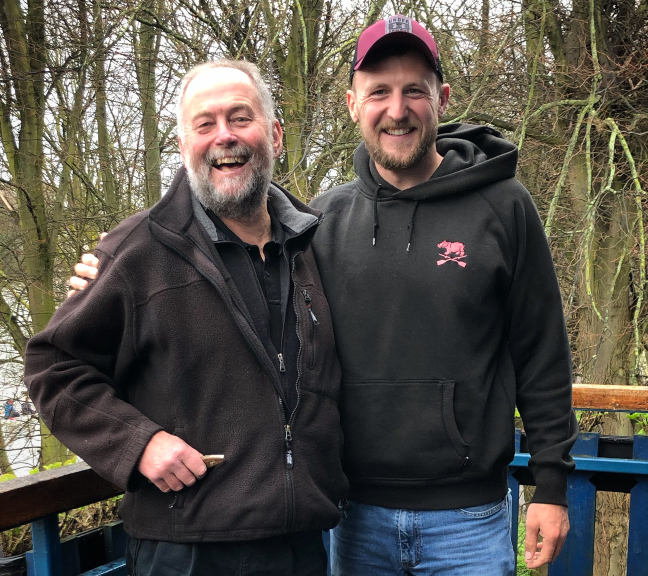
Geoff Adams for his part professes not to remember the occasion in very much detail at all, although he is clearly proud to have been able to play a part in Collins’ early career. The two are pictured above in a recent photo.
“He was already pretty tall and strong and I’m pretty ancient,” he says. “I imagine he tried to beast the boat along while I sat in the bow seat.”
An architect, who learned to row at Putney Town in the 1970s, in his 20s, Adams moved with the club from Putney to Chiswick Bridge in the 1980s. He was a volunteer coach as the club looked to establish a junior rowing section at around the time Collins arrived.
Now the club’s president (and honorary boatman) he is still an active member of the masters’ squad and reckons he is fitter aged 69 than he was during that outing in the winter of 2004.
Sixteen years ago, John would have described himself as “a chubby little kid who liked sweets and PlayStation”
“I loved it. I loved to see the progression of the kids,” Adams says of his time coaching youngsters. “Often it was the one you thought wouldn’t take to it, who did, and the one who was a natural, physically, would fail.
“John didn’t come across as being a natural, but he had determination. I thought he would stick at it; I don’t think anyone would say at that stage that an athlete would get into a national squad.
Other coaches made an impact along the way, from Seamus Keating at Putney Town, who taught Collins how tough the sport was, to Alan Inns over the river at Tideway Scullers, who first showed him what it would take to row at an Olympics.
As an 18-year-old he raced at the Coupe de la Jeunesse – an event for those not selected to the Junior World Championships – alongside at least five other future British Olympians.
Don McLachlan, coach of the British Rowing Start squad at Reading University at the time, sat down with an athlete “enjoying the uni lifestyle, without the studying” and forced a decision between quitting the sport or taking a step up to under-23 standard.
He describes his coaches at Leander – Mark Banks, Matt Beechey and Chris Collerton – as being “brutally effective at getting their points across”.
At Putney Town, Adams didn’t coach Collins regularly, although he would jump in the boat if the squad were a man down and even coxed occasionally, but the athlete always felt supported, saying: “He never forced his wisdom on you [but] if there’s a way he can help he will.”
Photos of Collins at recent Henley prizegiving ceremonies generally see him wearing Adams’ Putney Town blazer. The latter was amazed when it fit and let the athlete hold onto it.
Collins did some coaching himself before becoming a full-time athlete – and had some success too. Funded by the Henley Stewards’ Charitable Trust he worked for Henley Rowing Club, coaching the crew that won the inaugural event for girls’ quads, the Diamond Jubilee Challenge Cup, at the Royal Regatta in 2012.
He also spent a winter coaching the Putney Town masters’ squad, Adams recalling a 19 or 20-year-old holding his own dealing with much older athletes, a stickler for technique and detail.
However, Collins thinks he will probably want a change of scenery when his Olympic rowing career is over, whether that be after Tokyo next summer or another five years hence.
“I’m 31 years old and I’ve just set a 2k PB in my back garden”
He has found lockdown to be very productive, recording personal bests over 2km and 30 minutes on his Concept2 in his back garden, witnessed and supported only by his partner Karen Bennett, a senior member of the GB women’s squad.
“I’m really enjoying the rowing lifestyle, each day trying to make myself a bit better than the day before. Because of that, why should I stop at Tokyo?” he says.
“There are stressful days, with Olympic selection on the line and that takes its toll. I’ve got friends who have fallen by the wayside.”
“I’m 31 years old and I’ve just set a 2k PB in my back garden. I believe my best will be good enough [at the Olympics] and if I can do the business maybe the flame will go out.”
Adams was planning to be in Japan for the Olympic rowing this summer and is hopeful of being able to be at the rescheduled regatta next year.
He recognised that an awkward 15-year-old would stick at the sport back in 2004 and says now: “Whether this is his last [Olympics] I don’t know. I think he’ll probably squeeze another one in.”
Photo: Nick Middleton


